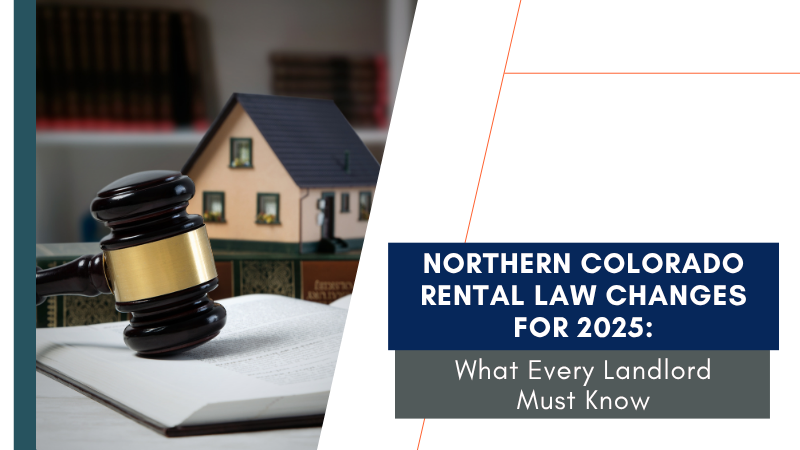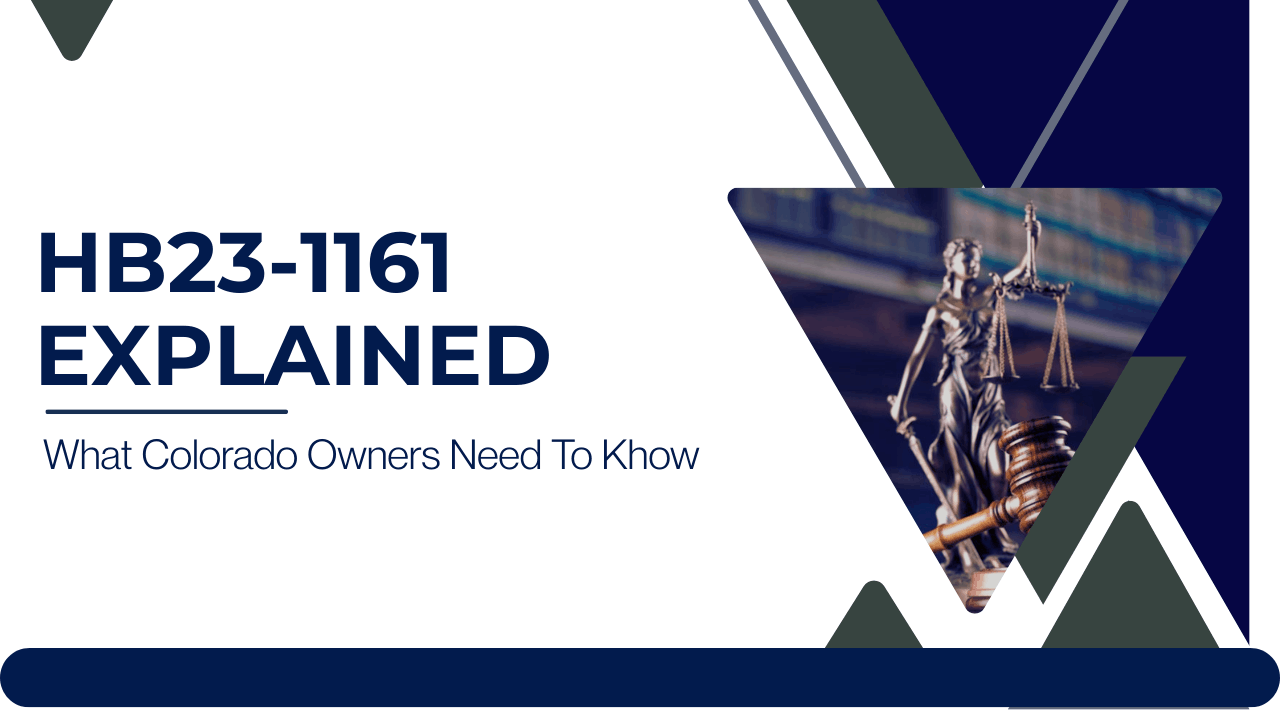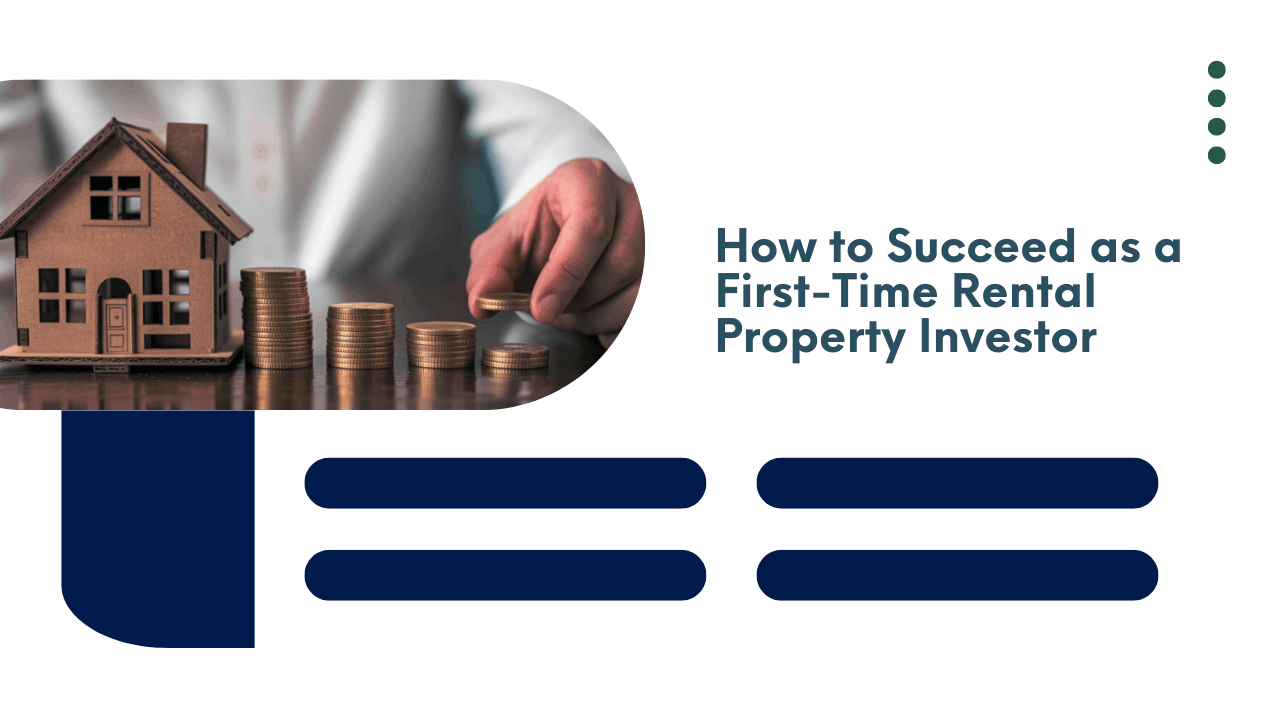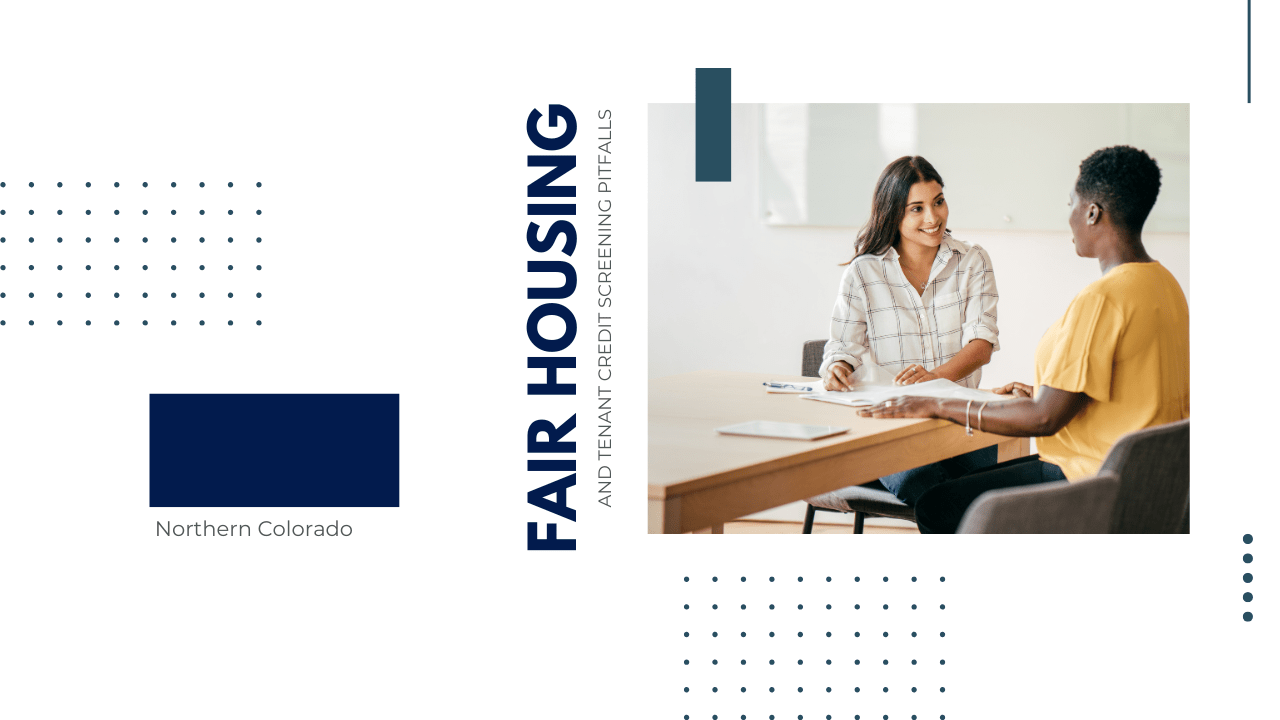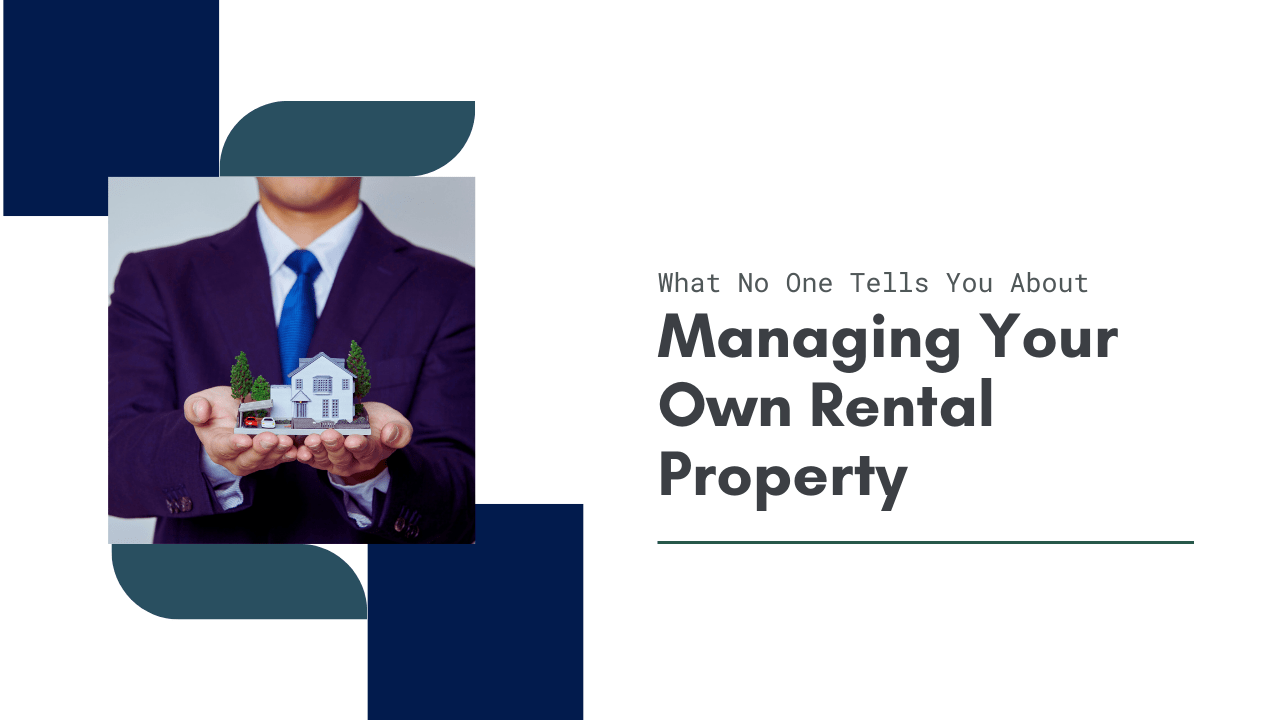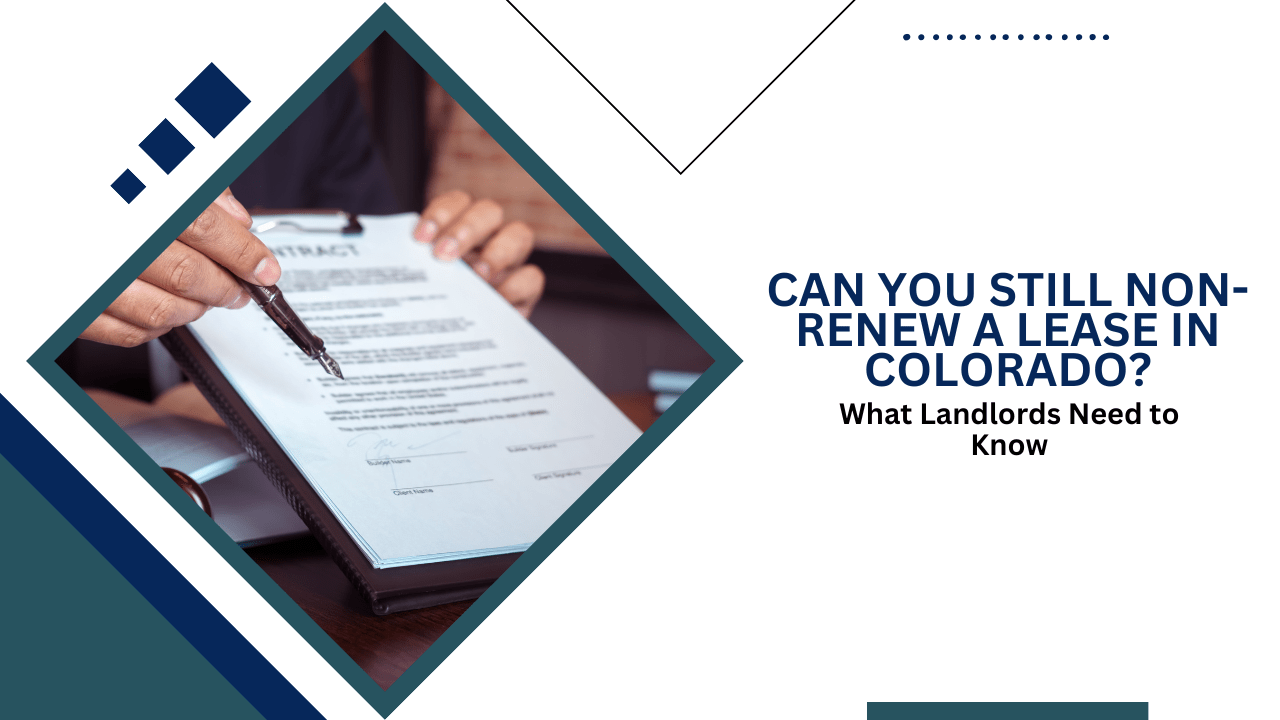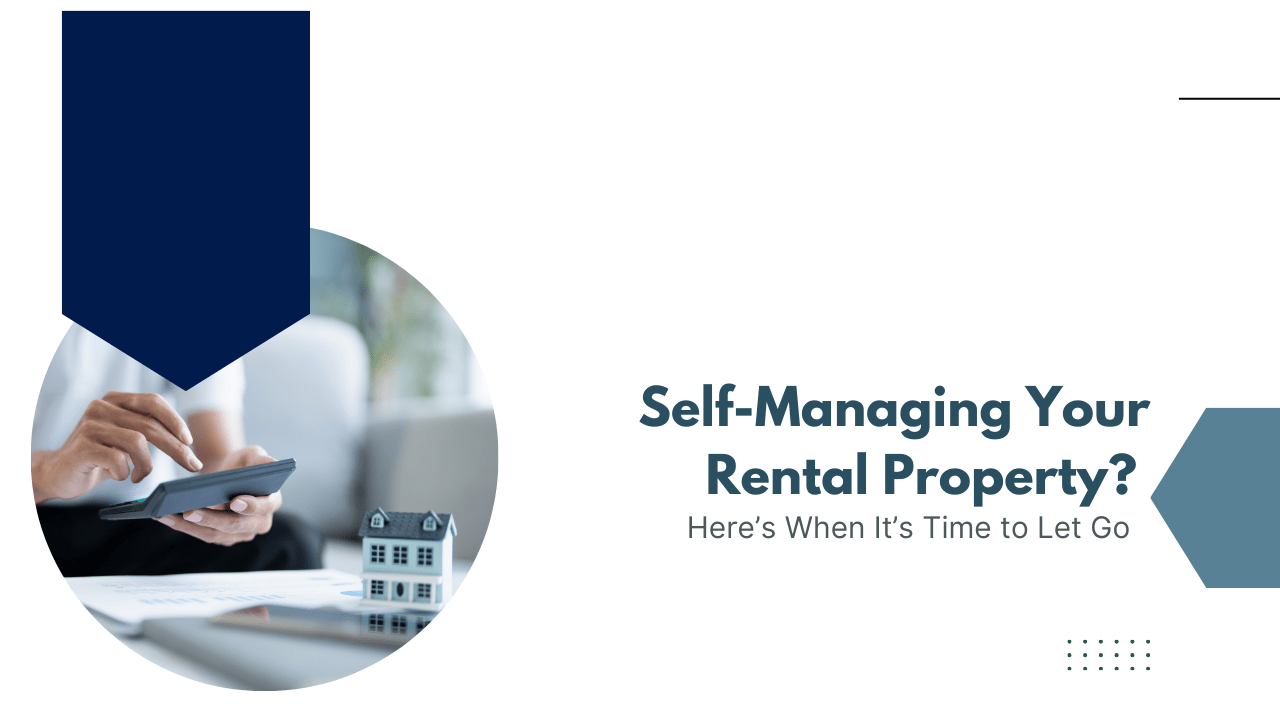Colorado Landlord Tenant Laws Are Changing — Are You Ready?
Over the past five years, Colorado has undergone some the most significant landlord tenant law reforms in decades. While 2025’s changes may appear milder on the surface, they are part of a much larger shift in how the state governs rental housing.
From how you handle lease renewals and security deposits to habitability standards and advertising requirements, landlords in Northern Colorado can no longer afford to "go with their gut." Missing just one compliance detail can result in steep fines, tenant disputes, or legal action.
Whether you own one rental or manage a small portfolio in Fort Collins, Loveland, Windsor, or surrounding areas, this guide breaks down what’s changed—and how to protect your investment.
Summary of the 2025-2026 Rental Property Law Changes in Colorado
Here’s a quick snapshot of the key legal changes affecting landlords and real estate rental investors this year and into 2026:
What Each New Law Means for Colorado Landlords
HB 24-1098: Lease Non-Renewal Restrictions
Colorado landlords can no longer choose not to renew a lease unless they have “just cause.”
Examples of just cause include:
- Serious lease violations (damage, nuisance, illegal activity)
- Major repairs or renovations
- You or a family member is moving into the property
- Taking the property off the rental market
- Tenant refusing to sign a reasonable new lease
Consequences for Landlords Who Don’t Follow HB 24-1098
If you try to evict someone without "just cause" under the new law, the tenant can fight it in court—and
you could lose. You must now give significant notice and keep clear documentation of why you're ending the lease.
Source:
https://leg.colorado.gov/bills/hb24-1098
HB 25-1249: Security Deposit Reform
Starting January 1, 2026, Colorado will enforce stricter rules on how landlords handle security deposits. These changes are designed to protect tenants — and they also mean landlords and
property managers need to be
extra careful about documentation and fairness when a tenant moves out.
Key Points for Colorado Landlords
- Pre-move-out inspections must be performed if requested, after the tenant has had the opportunity to remove their furniture.
- Carpets & Paint: A landlord can’t take money from a tenant’s security deposit for carpet or paint unless there’s serious damage that:
- Goes beyond normal wear and tear (see expanded definition below).
- Didn’t exist before the tenant moved in
If there is a valid cause, the landlord can only charge the smallest amount needed to fix the damaged area — not to replace everything. Carpet replacement and painting deductions are allowed
only for substantial damage, and only if the carpet is less than 10 years old. You can deduct from the security deposit for cleaning or carpet cleaning only if the unit is left significantly dirtier than it was at move-in.
3. If you
keep part of the tenant's security deposit, you must:
- Give a written list of exact reasons
- Include supporting documentation (receipts, photos, etc.)
- Do this
within 14 days if the tenant requests it in writing
Expanded Definition of "Normal Wear & Tear"
This bill also expands on the definition of "normal wear and tear".
Here is the verbatim definition from HB25-1249:
"(4) "Normal wear and tear" means deterioration, DAMAGE, OR UNCLEANLINESS that occurs, based upon the use for which a rental unit or mobile home space, as defined in section 38-12-201.5 (6.5), is intended OR REASONABLY AND TYPICALLY USED, without negligence, carelessness, accident, or abuse of the premises or equipment or chattels PRIVATE PROPERTY by the tenant or home owner or members of the tenant's or homeowner's household or their invitees or guests. "NORMAL WEAR AND TEAR" DOES NOT INCLUDE UNCLEANLINESS THAT RENDERS A DWELLING UNIT SUBSTANTIALLY LESS CLEAN THAN THE DWELLING UNIT WAS WHEN THE LEASE BEGAN."
Source:
(https://leg.colorado.gov/sites/default/files/documents/2025A/bills/2025a_1249_enr.pdf)
Penalties and “Bad Faith” Withholding for Not Following HB 25-1249
Withholding too much (125% or more over actual damage), skipping documentation, or deducting without real cause could be seen as
bad faith — and result in legal penalties.
If there’s a dispute,
the landlord must prove the damage and the cost.
Under the updated security deposit rules, landlords in Northern Colorado must be much more careful — and more specific — when deciding what can be deducted from a tenant’s deposit.
This means move-out inspections, detailed documentation, and clear communication with tenants are now more important than ever.
Source:
https://leg.colorado.gov/bills/hb25-1249
SB 24-094: Updated Habitability Requirements
This law strengthens Colorado’s warranty of habitability rules, making it
harder for landlords to delay repairs and easier for tenants to take legal action if rental conditions affect their health or safety.
What Northern Colorado Landlords Must Now Do
- Respond quickly: You must
communicate and begin repairs within a set number of days after being notified of an issue.
- Fix the maintenance issue fully: Temporary fixes don’t count — repairs must fully resolve the problem.
- Provide alternate housing: If the issue makes the unit unsafe, you may need to pay for a
hotel or temporary housing for up to 60 days.
- Keep documentation: You must save all emails, texts, and repair receipts related to tenant complaints.
Presumed Violation If Not Fixed in Time
If certain issues aren’t resolved within
7 to 14 days, courts may assume you're in violation — even if you were trying to fix the problem. This increases legal risk for slow or unorganized property owners.
New Property Lease Language Required
Starting
January 1, 2025, all new leases must include a clear notice (in English and Spanish) explaining where tenants can report unsafe conditions.
Risks to Self-Managing Landlords Who Fail to Comply with SB 24-094
- Tenants can now
use habitability claims as a legal defense in eviction or rent collection cases.
- Courts now have
new guidelines for awarding damages, including punitive fines if the landlord acted in bad faith.
- Landlords are
barred from retaliating if a tenant complains about unsafe conditions.
This law gives tenants more leverage — and puts pressure on landlords to
document and fix issues fast. Failing to respond properly can now lead to lawsuits, relocation costs, or blocked evictions. If this causes you stress, consider working with a professional property management company who keeps up with all new regulations and protects you from the above risks.
Source:
https://leg.colorado.gov/bills/SB24-094
SB 25-020: Receivership for Neglected Properties
If a multifamily rental property shows a pattern of serious neglect, the Attorney General or local governments can ask a court to appoint a receiver—a third party who temporarily takes over management. This typically applies to landlords who fail to fix ongoing habitability issues. Property owners can request to regain control after 90 days, but only if the problems have been resolved.
Source:
https://leg.colorado.gov/bills/SB25-020
HB 25-1090: Lease Pricing Transparency (Effective January 2026)
This law requires Northen Colorado landlords and property management companies to clearly show the
total cost of renting a unit before lease signing—no hidden fees allowed. This applies to online listings, printed ads, and even flyers. Any
non-included fees (like utilities) must be clearly explained—not hidden in fine print
Penalties for breaking HB 25-1090
If a tenant files a complaint and the landlord doesn’t fix the issue within
14 days, they could owe:
- Full reimbursement
- Actual damages
- 18% annual interest on disputed amounts
This law is all about
pricing transparency—make sure your listings and leases reflect all true costs.
Source:
https://leg.colorado.gov/bills/HB25-1090
What These Laws Mean for Self-Managing Landlords
For Northern Colorado landlords who manage their own properties, these new laws raise the stakes. It’s no longer just about keeping tenants happy — it’s about
following the letter of the law to avoid costly disputes.
You now need to:
- Track timelines and law effective dates — Know exactly when each new requirement kicks in and how long you have to act once an issue arises.
- Update lease templates — Ensure your rental agreements reflect updated legal language, especially around habitability, fees, and security deposits.
- Document all notices and lease events — Keep written proof of every notice sent, repair completed, inspection conducted, and communication with tenants.
- Be ready for tenant disputes and legal challenges — Tenants now have more rights and defenses, so you need solid records to protect yourself.
- Understand evolving legal definitions — Stay informed about how the law now defines “cause” for eviction, “normal wear and tear,” and what makes a unit “habitable.”
In short,
self-managing landlords in Colorado must now operate with the same precision as a professional property manager. Every lease change, move-out, and repair request needs to be tracked and documented — because under these laws, a casual approach could lead to serious legal trouble.
Why It’s Time to Rethink DIY Property Management
Managing your own rental property in Northern Colorado is no longer just about collecting rent and handling the occasional repair—it’s now a legal minefield.
Colorado Landlord Tenant Laws are getting more complex
New Colorado rental laws add multiple timelines, documentation requirements, and stricter tenant protections.
Mistakes are costly
A missed notice, unclear lease clause, or improperly handled security deposit can now lead to lawsuits, hefty fines, or even triple damages.
DIY may not save money anymore
When you factor in the risk of legal exposure, lost rent during vacancies or disputes, and the time it takes to stay compliant, hiring a professional property manager may now
cost less than doing it yourself
For many self managing landlords, the smartest move in 2025 might be shifting from DIY to a professional Northern Colorado property management company that stays ahead of every law—so you don’t have to.
How Stegner Property Management Keeps You Compliant
At Stegner Property Management, compliance isn’t an afterthought—it’s built into everything we do. Our team of property management professionals stays on top of every Colorado rental law change so you don’t have to.
- We track every legislative update to ensure your leases, notices, and processes are always up to date.
- We use legally compliant lease agreements and notices to reduce your risk of costly disputes or fines.
- Our systems for marketing, leasing, maintenance, and security deposits meet all state requirements. This protects both your investment and your legal standing.
With Stegner Property Management, Northern Colorado landlords can rent with confidence, knowing every detail is handled by experts who understand both landlord tenant
law and the
local market.
We’re
NARPM-certified, investor-owned, and trusted by landlords to manage their investment properties across Fort Collins, Wellington, Loveland, Windsor, Johnstown, and all over Northern Colorado.
Talk to Jim — He’s a Landlord Too, and He Gets It

